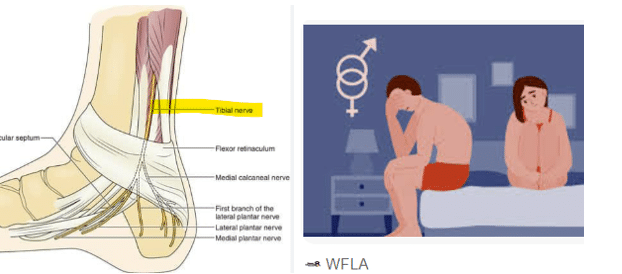
Noninvasive treatment led to more sexual interest, better orgasms: Study
by Margarida Maia, PhD | September 3, 2024
Transcutaneous tibial nerve stimulation (TTNS), wherein mild electrical impulses are applied to the tibial nerve located near the ankle, may help with sexual dysfunction related to multiple sclerosis (MS) in both men and women, a study suggests.
The study, “Tibial nerve stimulation in the management of primary sexual dysfunction in patients with multiple sclerosis: a pilot randomized control trial,” was published in the journal Neurological Sciences.
Many people with MS experience some form of sexual dysfunction that prevents them from feeling pleasure from sexual activity. For men, this often means problems with getting or maintaining an erection, while women may have poor vaginal lubrication.
Both men and women with MS can also experience reduced sexual desire and difficulty achieving orgasm. Along with other common symptoms like fatigue and depression, sexual dysfunction can have a toll on intimacy and emotional wellness.
Stimulating tibial nerve may also help with bladder control
TTNS is a noninvasive procedure where mild electrical impulses are applied to the tibial nerve, which is connected to the pelvic region, where it helps muscles contract. Stimulating the tibial nerve is safe for people with MS who have an overactive bladder and may help with bladder control, which is closely linked to sexual function. — Click here to continue reading
Stay informed with MS news and information - Sign-up here
For MS patients, caregivers or clinicians, Care to chat about MS? Join Our online COMMUNITY



